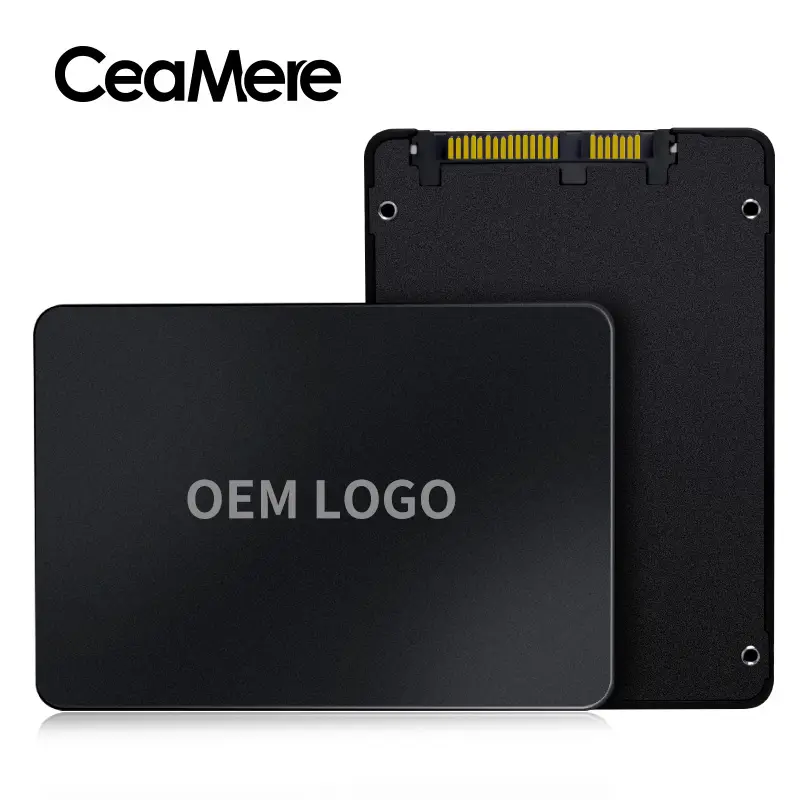Top Advantages of SSD Drives Over Traditional Hard Drives
In the fast-evolving landscape of technology, the storage solutions we choose can significantly impact our computer's performance and longevity. Solid State Drives (SSDs) have emerged as a revolutionary alternative to traditional Hard Disk Drives (HDDs), offering a plethora of benefits that are transforming how businesses and individuals manage data. This blog post dives into the top advantages of SSD drives over traditional hard drives, providing insights for those considering an upgrade.
Table of contents:
How SSD Drives Improve System Performance and Boot Times
Why SSDs are Ideal for Data-Intensive Applications and Gaming
Key Features of SSD Drives That Enhance Speed and Reliability
Comparing SSD and HDD for Better Data Protection and Longevity
How SSD Drives Improve System Performance and Boot Times
The first noticeable advantage of SSD drives is their ability to significantly enhance system performance. Unlike HDDs, which rely on spinning disks and mechanical read/write heads, SSDs use flash memory to store data. This fundamental difference means that SSDs have no moving parts, allowing for nearly instantaneous data access. Booting up a computer with an SSD can take mere seconds compared to the prolonged wait times often associated with HDDs. This speed is crucial for users who require rapid access to applications and files, making SSDs an ideal choice for improving overall productivity. According to recent studies, computers equipped with SSDs can boot up to two to three times faster than those with HDDs, drastically reducing downtime and frustration.Furthermore, the absence of moving parts in SSDs contributes to their durability and reliability. They are less susceptible to physical damage, such as bumps or drops, ensuring that your data stays safe even in the most turbulent environments. For businesses that rely on quick data access and secure storage, SSDs offer a compelling argument for investment.
Why SSDs are Ideal for Data-Intensive Applications and Gaming
For applications that demand high-speed data processing and retrieval, SSDs are the go-to choice. Data-intensive applications, such as video editing software and large databases, benefit immensely from the rapid data access that SSDs provide. The ability to quickly read and write large files without lag is essential for maintaining workflow efficiency and achieving optimal results.Gaming enthusiasts also stand to gain from the transition to SSDs. In gaming, milliseconds matter. The loading times of games, the rendering of environments, and the seamless transition between game levels are all enhanced with the use of SSDs. Popular gaming consoles and high-performance gaming PCs incorporate SSDs to ensure players enjoy smooth, uninterrupted gaming experiences.Additionally, SSDs can improve the multitasking capabilities of a computer. They enable users to run multiple applications simultaneously without sacrificing performance, facilitating a more efficient and productive work environment. This is particularly beneficial for professionals who need to run resource-intensive applications concurrently.
Key Features of SSD Drives That Enhance Speed and Reliability
The key features of SSD drives that make them superior to HDDs extend beyond just speed and performance. One of the standout features is their energy efficiency. SSDs consume significantly less power than traditional hard drives, which is a crucial consideration for both laptops and desktops. This lower power consumption translates to longer battery life in portable devices and reduced energy costs in larger setups.Another important feature is the quiet operation of SSDs. Without the noise generated by spinning disks and moving parts, SSDs operate silently, contributing to a quieter and more pleasant working environment. This can be especially advantageous in office settings where noise reduction is a priority.SSDs also come equipped with advanced error correction and wear-leveling technologies. These features ensure the longevity and reliability of the drive by evenly distributing data across the memory cells. This not only prolongs the life of the drive but also enhances its ability to store data accurately, reducing the risk of data corruption.
Comparing SSD and HDD for Better Data Protection and Longevity
When it comes to data protection and longevity, SSDs offer several advantages over HDDs. The lack of mechanical components in SSDs makes them more resilient to physical shock, vibration, and temperature fluctuations. This robustness ensures that data remains safe, even in environments where traditional hard drives may fail.SSD drives also tend to have longer lifespans thanks to their advanced wear-leveling technologies. By intelligently managing the wear and tear on the memory cells, SSDs can provide consistent performance over time, giving users peace of mind about the security and durability of their data storage solutions.In terms of data protection, SSDs support advanced encryption methods that safeguard data from unauthorized access. This is particularly important for businesses that handle sensitive information and need to comply with strict data security regulations. With SSDs, users can rest assured that their data is protected from both physical and cyber threats.
To conclude, the benefits of SSD drives over traditional hard drives are extensive and impactful. From improved system performance and faster boot times to enhanced reliability, energy efficiency, and data protection, SSDs present a compelling case for users looking to upgrade their storage solutions. Whether you're a business professional, a gamer, or simply someone seeking a more efficient computing experience, transitioning to SSDs can be a game-changer.If you're ready to make the switch and experience these benefits firsthand, explore our range of high-performance SSDs and find the perfect fit for your needs. For bulk orders and more information, visit our trusted SSD supplier, and take the first step towards faster, more reliable data storage today.

Comments
Post a Comment